

Publications Regarding Right to Equality
Articles

Not Studying, Not Serving—And Now, Not Funded
Written By: Dr. Asaf Malchi
The Attorney General recently gave instructions to halt government funding for yeshivot for young Haredim who have dropped out. These instructions promote the value of equality and may also help advance the status of the young men who have dropped out.

Lack of Protective Structures Against Missile Attacks in Arab Localities
Written By: Adv. Lital Piller
As Israeli citizens are facing severe threats to their safety during following an escalation of hostilities between Israel and Iran, it is, once again, clear that Arab localities lack proper protective infrastructure against missile attacks.

Enlisting Marginalized Young Haredim
Written By: Eliyahu Berkovits, Dr. Asaf Malchi

Arab Representation in the Judiciary is Under Threat
Written By: Adv. Lital Piller
By shifting power from professional bodies to political appointees the new law restructuring the Judicial Selection Committee is likely to reduce Arab representation and exacerbate their exclusion.

Public Opinion Survey on Representation of Women in Influential Roles Part I
Written By: Adv. Anat Thon Ashkenazy
A survey on women's representation conducted among men and women in Israel. Findings show that most (65%) consider equal representation when deciding on which party to vote for; 71% think the number of women in the Knesset, the government and in senior positions should be increased.

Women’s Representation in Israeli Politics: Analysis for 2025
Written By: Prof. Ofer Kenig
An analysis and international comparison of women's representation in the Israeli political arena.

“Democracy on the Frontlines” Conference Survey
Written By: The Israel Democracy Institute
Only a small minority of the Israeli public (8%) think that the judicial overhaul should be the government’s highest priority today; The majority of respondents (53%) support keeping the current structure of the Judicial Selection Committee. Only around a quarter (27%) suppor adding politicians to the Committee.

Reserve Duty During the Iron Swords War by Religious Self-Definition
Written By: Dr. Ariel Finkelstein, Nadav Porat Hirsh
This study presents a survey of the distribution of reserve duty among the various religious groupings within the Jewish population, along with more in-depth analysis regarding the age and gender of reservists.

IDI Releases New Survey Findings on Haredim; Convenes Haredi & Arab Leaders to Advance Shared Society
Written By: Israel Democracy Institute
The Israel Democracy Institute’s Joan and Irwin Jacobs Center for Shared Society convened its annual conference to discuss key issues of shared society.

Don’t Let Haredi Leadership Stand in the Way of Haredim Who Want to Enlist in the IDF
Written By: Dr. Asaf Malchi
While the Haredi leadership is fighting against military service for yeshiva students, real change is already visible on the margins of Haredi society, with a growing desire among young men to serve in the IDF like other Israelis. What’s needed now is for the politicians, the religious leadership, and the government to adapt to the changes on the ground.

Proposed Legislation Expands Permitted Gender Separation in Academia
Written By: Adv. Anat Thon Ashkenazy, Adv. Sapir Paz
While it’s important to facilitate the integration of Haredim into academia and the workforce, seperate graduate program for men and women can be harmful to the rights of women and often clashes with the law that prohibits gender-based discrimination in public places.

Early Childhood Daycare Subsidies in Israel in Different Sectors
Written By: Gabriel Gordon,
A survey of daycare subsidies in Israel and recommendations for improved criteria that would encourage participation in the labor market among the ultra-Orthodox.

Chipping Away at Decades of Progress: Gender Segregation in Israel
Written By: Adv. Anat Thon Ashkenazy
The diminished number of women in decision-making positions in government, coupled with the increase in attempts to implement gender segregation, threatens the right to equality.

Fear of Politicization of Police Prosecution: A Sign to Separate from the Police
Written By: Dr. Guy Lurie
To protect the credibility of the police as an impartial law enforcement agency, independent oversight over the police prosecution unit - the police unit that issues criminal charges - must be increased through the Attorney General's office.

A Sharp, Unequivocal, and Unanimous Supreme Court Decision to Draft Haredim
Written By: Prof. Suzie Navot
The Supreme Court ruling on June 25th addresses the question of whether the government is operating in accordance with the law. It determined that the state must act in accordance with the law and act to draft ultra-Orthodox. It also connects between the issue of exemptions and the criteria for eligibility for yeshiva budget funds.

Haredi Conscription | Decision Time
Written By: The Israel Democracy Institute in Collaboration with Makor Rishon
A special collaboration with Makor Rishon includes updated data on conscription, information on shifting trends in Haredi public opinion, articles and columns by researchers at IDI.
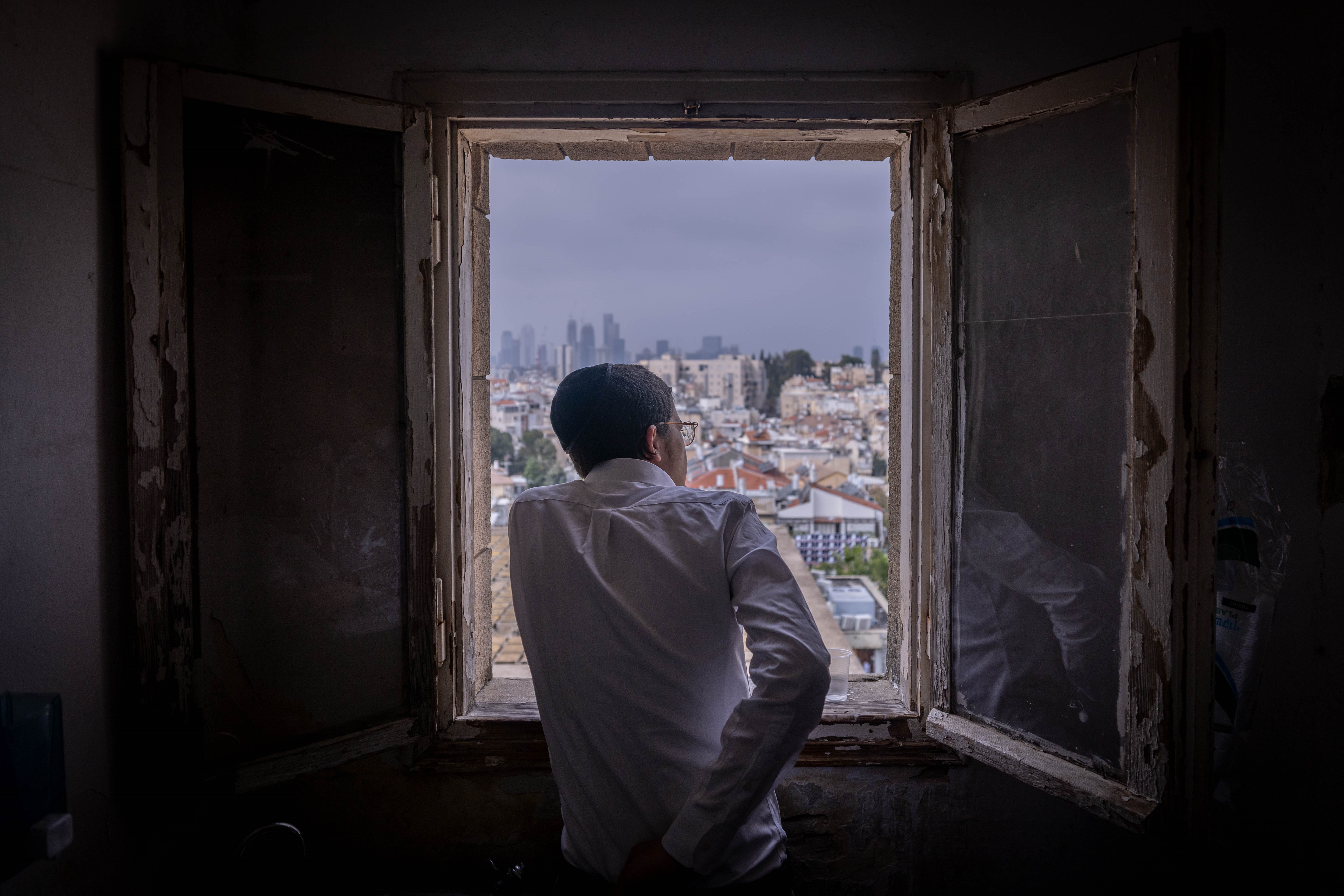
I, Too, Have Come to my Senses: It is Time to Rethink the Haredi Role in Israeli Society
Written By: Dr. Rivka Neriya Ben-Shahar
Dr. Rivka Neriya-Ben Shahar proposes a model that resembles the secular educational system of colleges and universities to identify the most gifted torah scholars, who would receive a generous stipend. Others must rethink their role as part of Israeli society.
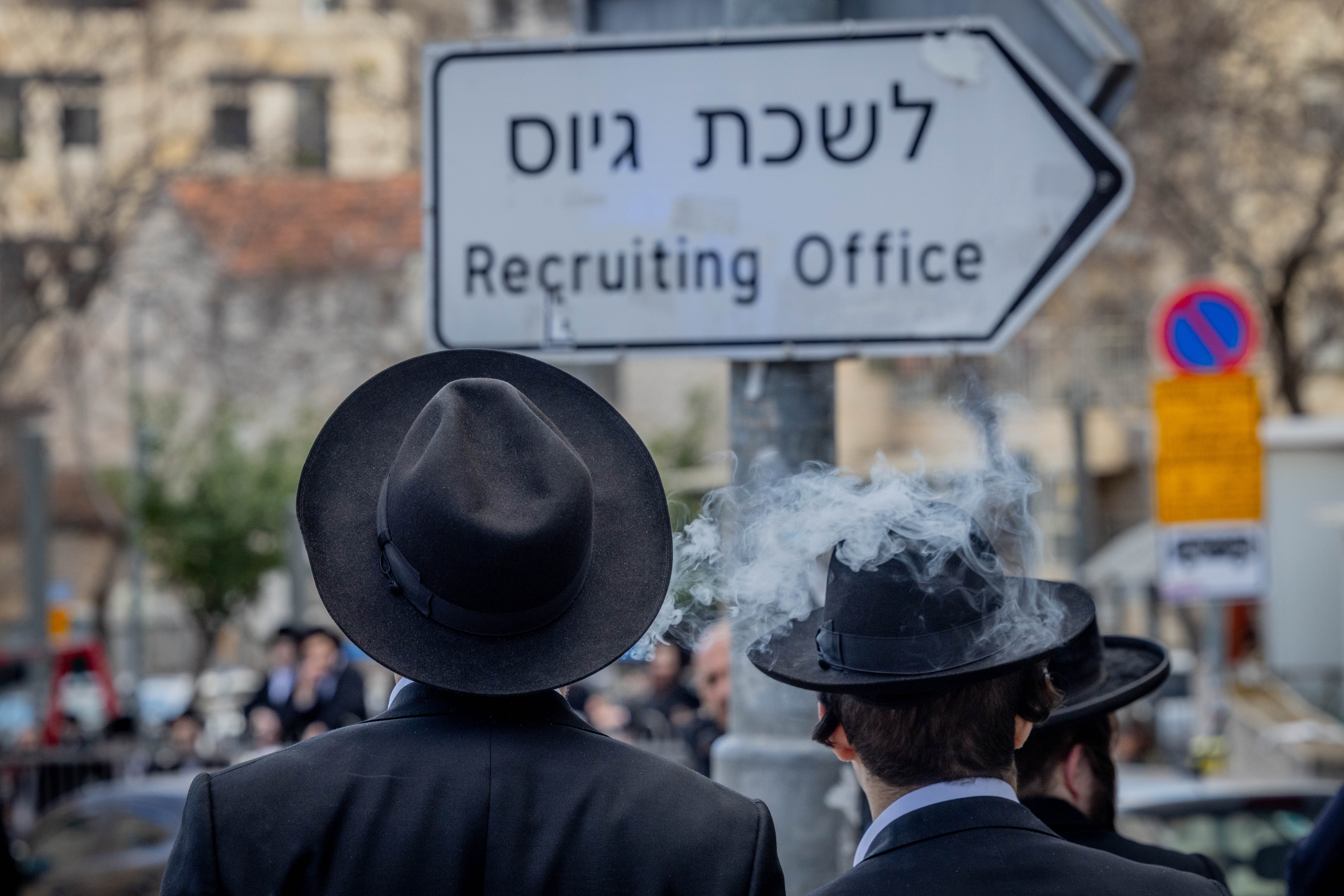
Response to the Government's Proposal for Haredi (non-) Conscription
Written By: Yohanan Plesner , Dr. Gilad Malach
Response to the Government's Proposal for Haredi (non-) Conscription by Yohanan Plesner, President of the Israel Democracy Institute, and Dr. Gilad Malach, Head of IDI's Ultra-Orthodox in Israel Program

Development of the Haredi Exemption Law
Written By: Prof. Yuval Shany, Adv. Mirit Lavi
The history of the ultra-Orthodox exemption from service in the Israeli Defense Force (IDF), from the 1948 until today.
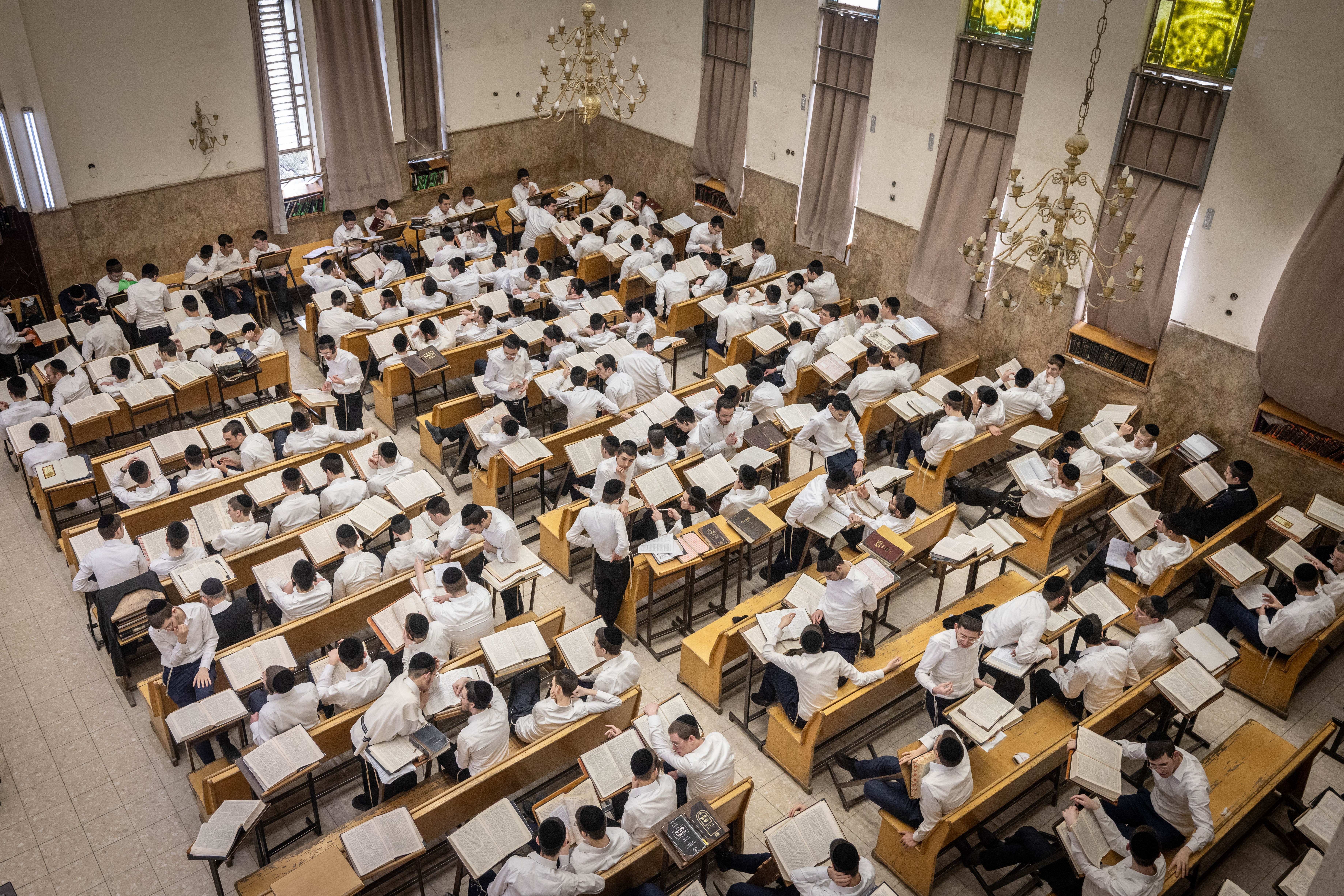
IDI Analysis: 7.3% Surge in Yeshiva and Kollel Students
Written By: Yohanan Plesner , Dr. Gilad Malach
Yohanan Plesner, president of IDI and head of the 2012 Plesner committee which sought to implement a model of "service for all," and Dr. Gilad Malach, head of the ultra-Orthodox program at IDI, share their analysis of the rapid increase in the number of yeshiva and kollel students over the past year.
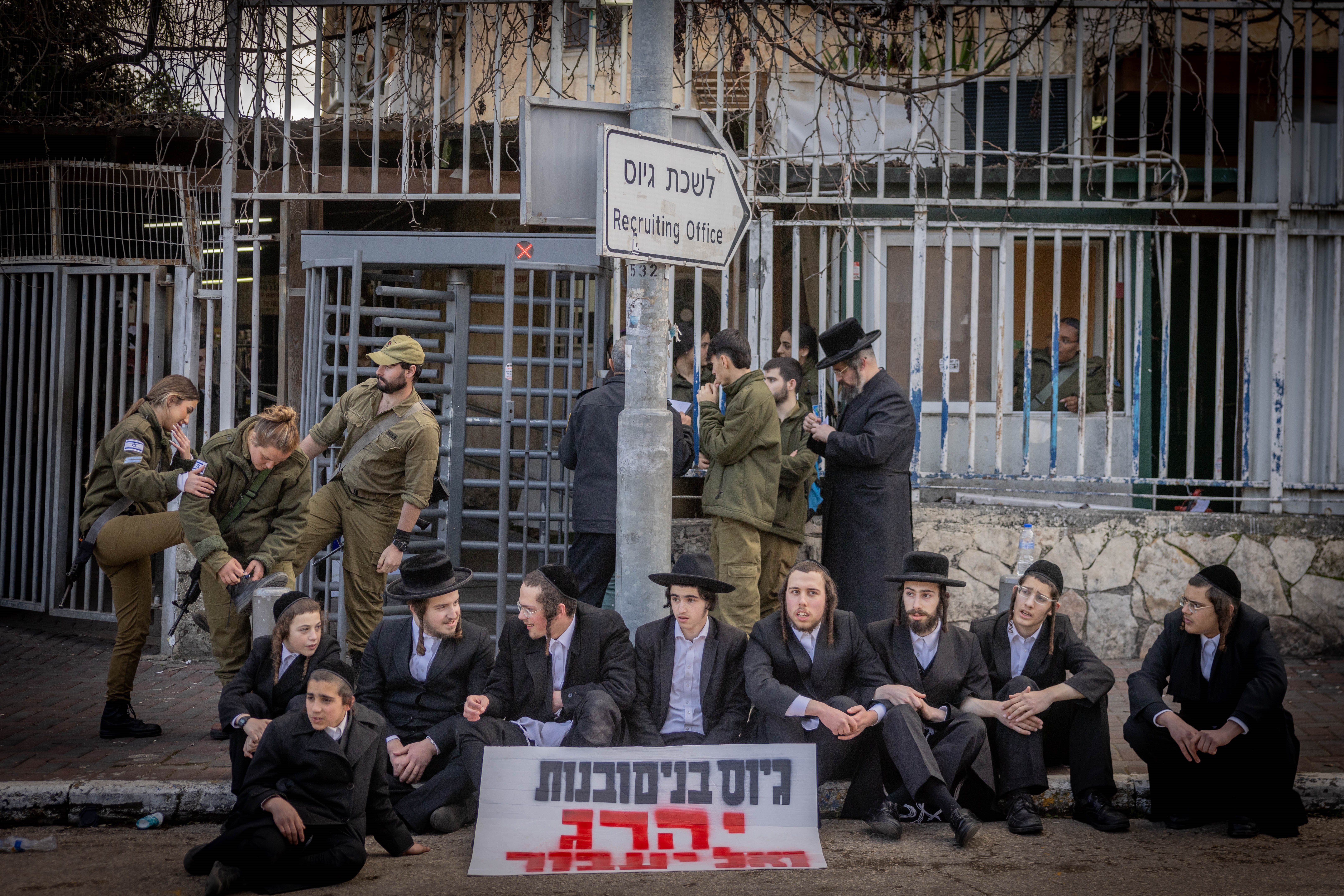
Explainer: The Supreme Court hearing on (non) recruitment of ultra-Orthodox men and budgeting of yeshivas
Written By: Adv. Shlomit Ravitsky Tur-Paz
What is the connection between the expiration of the conscription law and the budgets for yeshivas? What exactly was discussed in the Supreme Court and is the state in violation of the law? Bottom line, will the ultra-Orthodox be recruited, or not?

Women’s Representation in Israeli Politics: Analysis for 2024
Written By: Prof. Ofer Kenig
Between 1996 and 2015, there was a real improvement in women's representation in the Knesset. Since 2015, however, it seems this upward trend has stalled and female legislative representation is faltering, especially compared to other democracies.

Follow the Money: On the War, Drafting the Yeshiva Students, and the State Budget
Written By: Prof. Benjamin Porat
The legal basis for deferring military service for Yeshiva students no longer exists, removing legal justification for the transference of funds to religious institutions with students under 26. Funding for Torah study institutions is the most substantial question that needs to be addressed at the current time, when Israeli society is rethinking its relations with the Haredi public.
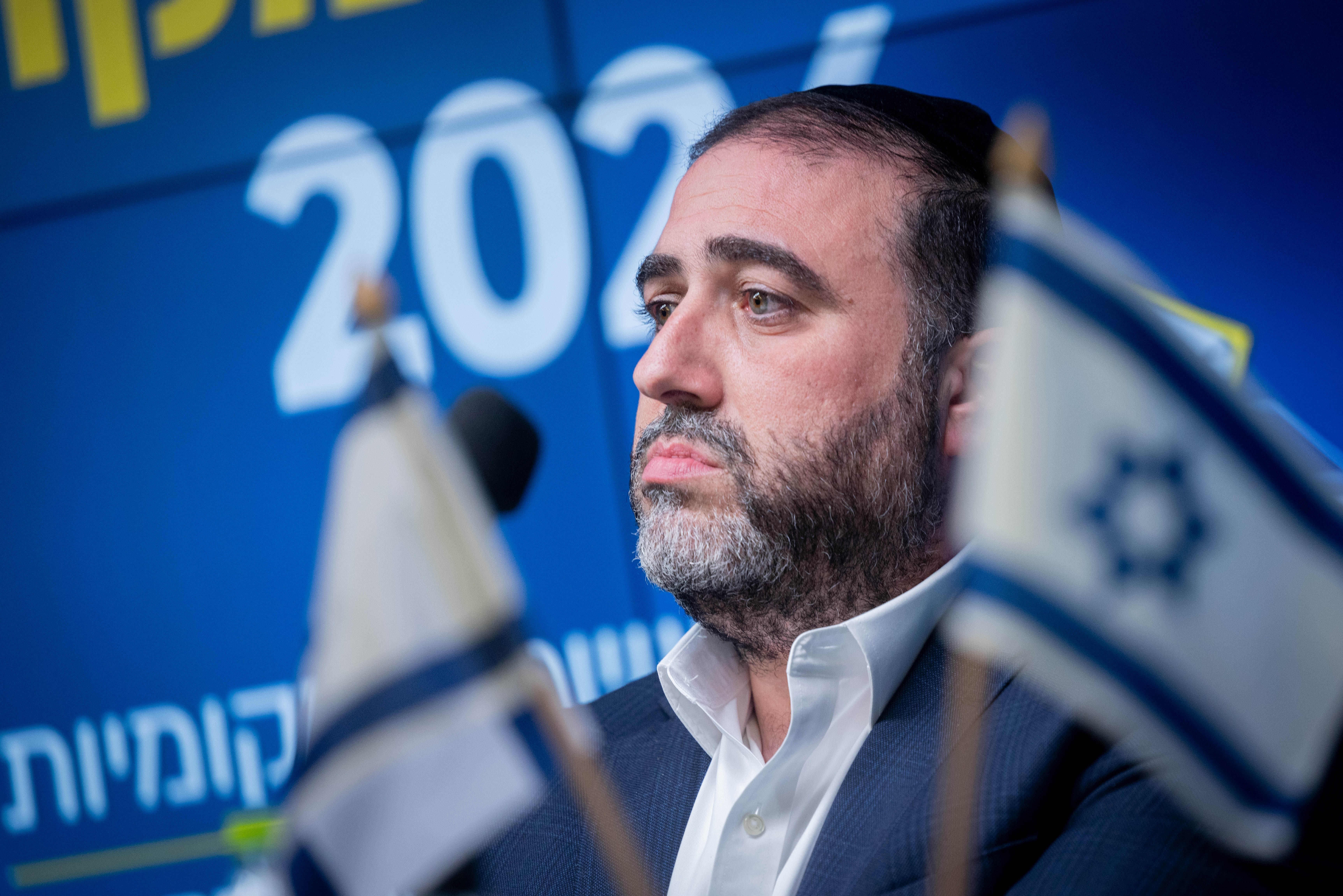
Rabbinical Elites Versus Traditionalists: IDF Conscription Law Reveals Rifts in Shas Party
Written By: Eliyahu Berkovits
Internal struggles between factions within the Sepharadic ultra-religious movement Shas are only beginning. The absence of the unifying figure of Rabbi Ovadia Yosef is still sorely felt, and only time will tell whether the rabbinical elite or the Knesset members representing a moderate electorate will gain the upper hand.

Bordering Beliefs: Israel’s Sociopolitical Divide Between Liberal and Ultra-Orthodox Values
Written By: Adv. Edna Harel Fisher
In Israel, social borders, political demands and the status of women continue to underscore tensions between liberal democratic values and the conservative, ultra-Orthodox Jewish communities.

Representation of Women in Elections for Local Authority Heads
Written By: Dr. Itamar Yakir, Dr. Ariel Finkelstein, Yechiel Noam
From a historical perspective, the proportion of female heads of local authorities in Israel has been extremely low—essentially negligible throughout most decades. How does women’s representation in local authorities during the first two decades of the 21st century compare?
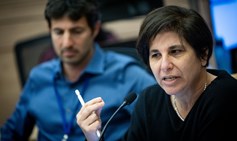
The Inexcusable Absence of Women in Israeli Ministry Leadership Roles
Written By: Adv. Anat Thon Ashkenazy
Minister of the Economy Barkat's decision to remove Adv. Michal Cohen from her role as Director of the Competition Authority compounds a two-pronged problem. On the one hand, the diminishing number of women in Ministry leadership roles, and on the other, increased political interference in professional authorities, risking their independence and professional standards.
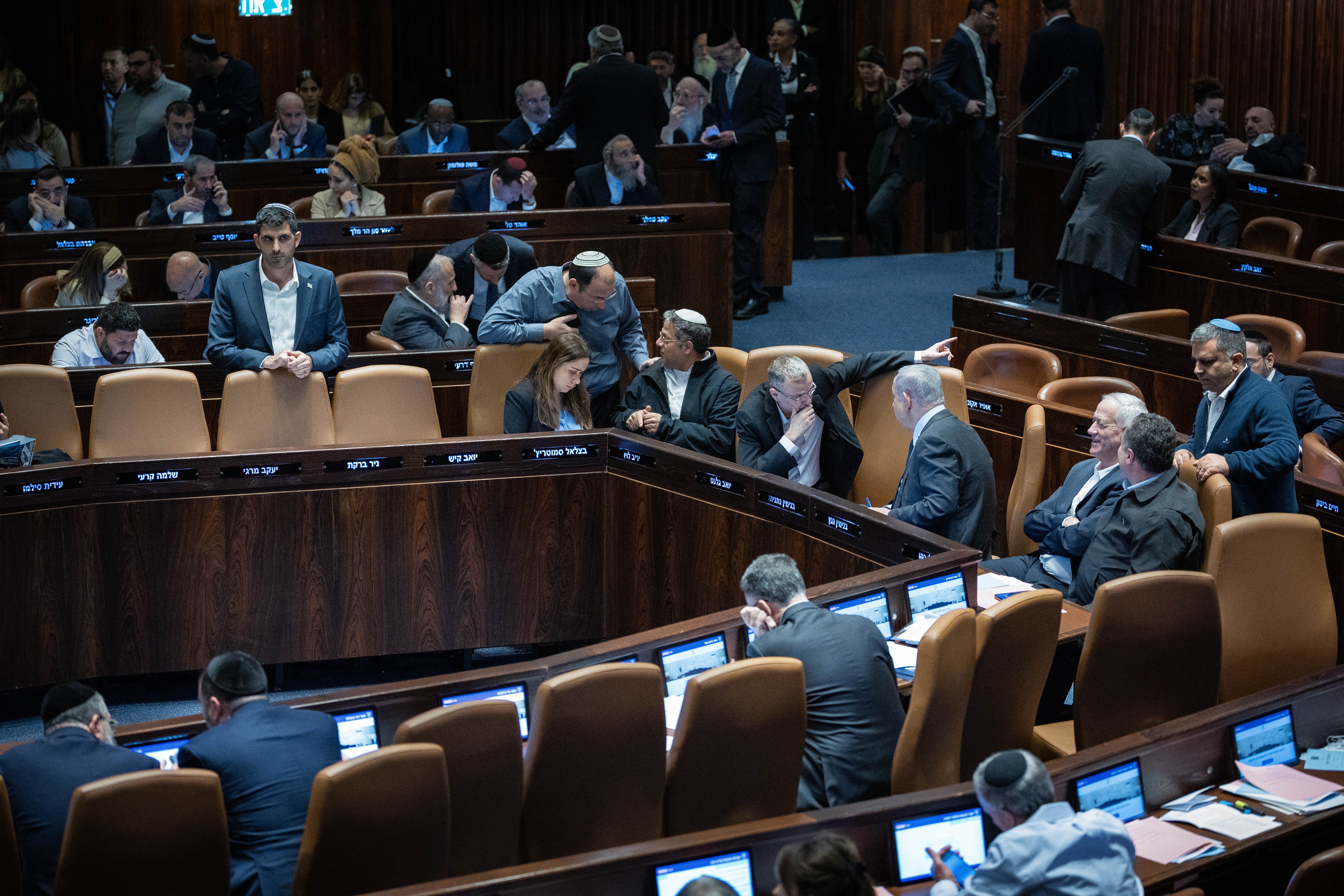
Coalition and Political Funds: Main Conclusions
Written By: Prof. Karnit Flug, Tzachi David
Coalition funds have been part of the budget-making progress for years. This study examines the trends in the use of these funds under the last three governments. One can see that the volume of coalition funds has grown up to fourfold within two Governments and that their breakdown has been less professional and more directed to interest groups.

The Worthy Clause in the Nation-State Law
Written By: Dr. Amir Fuchs
The Nation-State Law includes a clause that declares the state's obligation to care for all Jewish people and all Israeli citizens whenever they are in jeopardy due to either their Jewish identity or Israeli citizenship. This does not impose a legal obligation, but it does reflect this special value which must not be lost during this war.

Amend the Nation-State Law. Now.
Written By: Prof. Suzie Navot
Israel's non-Jewish minorities—particularly those who are fighting and dying for the State of Israel—are worthy of appreciation and recognition, not separately, but as equals. The solution is to amend the Nation State Law, not to pass a new, separate basic law as is currently under consideration.

When solidarity was lost on the most important day of the Jewish year
Written By: Prof. Amichai Cohen
The hurt felt by the broad section of the Israeli public that is moderately traditional may have serious consequences for the struggle against the government’s judicial overhaul.

Tel Aviv's Yom Kippur Struggle Could Have Been Avoided
Written By: Adv. Shlomit Ravitsky Tur-Paz
The judicial overhaul is forcing Jewish Israelis to choose to identify, in an almost dichotomic manner with one of two camps. As they clash, the real loser is our unifying, complex, diverse, and open Jewish identity.

Populism as an Existential Threat in Israel
Written By: Prof. Gideon Rahat
In an effort to create uniformity, populists are ready to destroy the state.

No professionalism, no expertise – and no women
Written By: Adv. Anat Thon Ashkenazy
The Authority for the Advancement of Women's Status and agencies like it are being gutted along with protections for women

Extending the Definition of Incitement Exclusively to Haredim: Unequal and Unjust
Written By: Dr. Amir Fuchs
Should the foundations of the crime of incitement to racism be reconsidered? Absolutely-yes. But it should not be selective and favor a particular sector in society.

The IDF’s Greatest Challenge
Written By: Yohanan Plesner
The model underlying the IDF’s success is in grave danger - we must have the courage to change its outdated model of service

Women’s Service in the IDF: Between a ‘People’s Army’ and Gender Equality
Written By: Dr. Idit Shafran Gittleman
Over the years and especially in recent decades, the concept of gender equality has also become relevant to the discussion of military service, and more and more roles have been opened up to women serving in the IDF. Dr. Idit Shafran Gittleman presents an overview of women in the IDF since its establishment.

The Lack of the Right to Equality in Israel is Unique in the Democratic World
Written By: Prof. Yuval Shany, Dr. Amir Fuchs
Israel Democracy Institute researchers welcome the move to anchor the right to equality in a Basic Law, and note the urgent need for this step, particularly in light of the Nation-State Law. At the same time, the researchers also recommend a series of amendments to the bill.

Women's Representation in the Knesset and the Government: An Overview
Written By: Dr. Assaf Shapira, Prof. Ofer Kenig, Avital Friedman
Women still constitute less than 30% of all Knesset members and the percentage of female cabinet members in the government has never risen above 23.5%

Did You Know? Israel has no Law Guaranteeing the Basic Right to Equality
Written By: Dr. Amir Fuchs
A bill to include the right to equality in Israel's Basic Laws recently passed a preliminary reading in the Knesset. This is a much-needed amendment to an existing law, which would provide Israelis with legal provision that exists in the constitution of all democratic countries.

A Blow to the IDF as the ‘People’s Army’
Written By: Prof. Yedidia Z. Stern
A proposal by the panel appointed to investigate ultra-Orthodox enlistment to lower the exemption age defies multiple High Court rulings
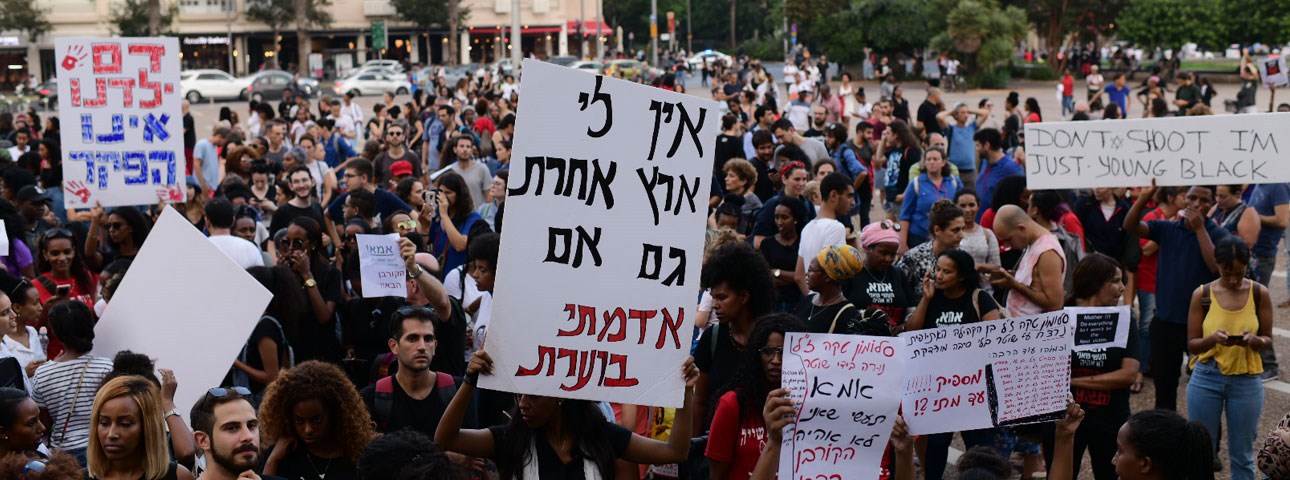
Why are the Ethiopian Israelis Angry?
Written By: Prof. Tamar Hermann
Only rarely can a protest totally uproot racism and discrimination, but a strong leadership can negotiate for change
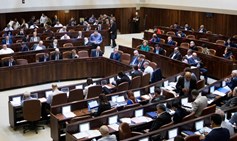
Everything you Wanted to Know About the Immunity Law
IDI experts provide an overview to the proposed Immunity Law that would grant members of Knesset automatic immunity from criminal prosecution

The Democracy Pavilion
The Democracy Pavilion, a unique multi-media experience, in full 360 degree technology, showcasing the values embedded in Israel’s Declaration of Independence, will open to the public on Independence Day.
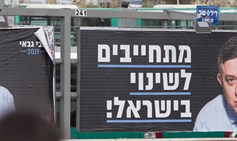
Behind Every Man Stands… Another Man
Written By: Adv. Alona Vinograd
The major parties have been turning a blind eye to women politicians, and their campaigns are the worse for it

Israeli Politics is Still a (Mostly) Boys’ Club at the Top
Written By: Prof. Ofer Kenig
Despite record numbers in the Knesset, few females hold senior government posts — their absence leaves Israel worse off.

Supporting the LGBTQ's Struggle for Equality
The Israel Democracy Institute’s management announced its support for the LGBTQ’s struggle to amend the newly passed Surrogacy Law so as to included gay couples.

Co-Ed Army Service in Israel
Written By: Dr. Idit Shafran Gittleman
It’s time for the people’s army to listen to the voice of the people, and not just to the voice of extremists.

Status of Women in Israeli Politics: The Good, The Bad and The Road to Full Equality
Written By: Prof. Ofer Kenig
The impressive increase of women's representation in the Knesset has not translated into similar strides in other political spheres and senior executive positions.
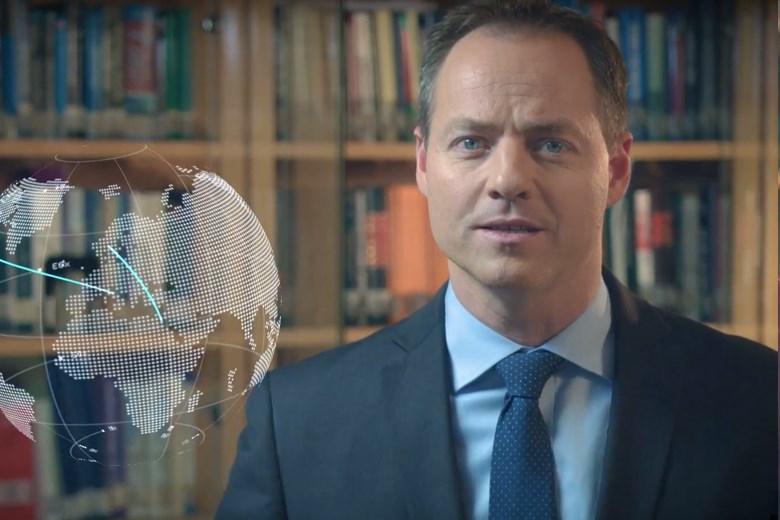
Ensuring a Vibrant Democracy
Written By: Yohanan Plesner

Is Israeli Society Frail Or Flourishing?
Written By: Prof. Yedidia Z. Stern
Is Israeli democracy weak, fragile and on the brink of collapse, or is it robust, stable and resilient?

Time to Allow Everyone to Worship at the Foot of the Temple Mount as they Wish
Written By: Prof. Yedidia Z. Stern
No aspect of the current Western Wall plaza arrangement, in which the Orthodox maintain a monopoly, will change if other denominations are allowed to pray at the foot of the Temple Mount in a new plaza. This article was first published by The Jerusalem Post.
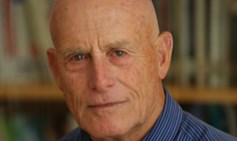
Could Profiling Prevent Another Orlando Shooting?
Written By: Story Hinckley
Often missed in the civil liberties debate over profiling is evidence that shows it is not effective. But proponents point to Israel, whose airport screening has kept it free of attacks since 1972.

Trump, Clinton and the King of Moab
Written By: Prof. Yedidia Z. Stern
What do the two candidates for the American presidency — Hillary Clinton and Donald Trump — have in common? Almost nothing at all — except that their children are married to Jews. This op-ed by Yedidia Stern originally appeared in the Jewish Journal.

Jewish, Democratic and Equal
Written By: Prof. Yedidia Z. Stern
There is a necessary condition that must be fulfilled for the existence of our nation-state to be justified: there must be an unconditional guarantee of civic equality for our national minorities. In this area, there is still much to be done.

Responsibility to Protect – a Right of Self-Defense for All States against Atrocities
Written By: Prof. Mordechai Kremnitzer
This essay makes a case for the international community’s right of self-defense against atrocities, through its members, and to refer briefly to the challenge of implementing such a right.
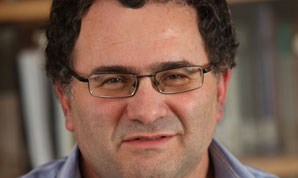
Israel’s Unraveling at the Western Wall
Written By: Yair Sheleg
Yair Sheleg, head of IDI's Religion and State program, argues that there are multiple forms of Jewish identity and that religious coercion should not be used to oppose a reality that history created.
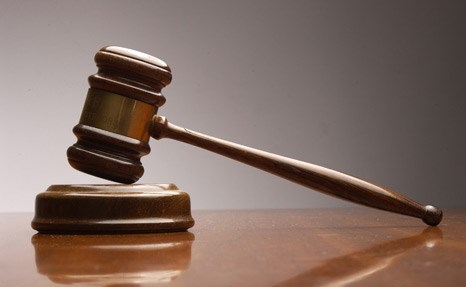
Judicial Appointment Highlights Dramatic Changes Among Israeli Haredim
Written By: Prof. Yedidia Z. Stern
Earlier this month, change snuck in through the back door of Israel's court system when Israel’s first ultra-Orthodox judge was appointed. This article was first published by the Jewish Press.
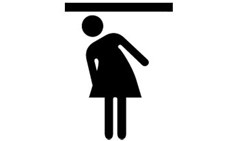
Women in Israeli Politics
Written By: Prof. Ofer Kenig
The number of women in Knesset has increased dramatically to five times what it was 25 years ago. The share of women in the Israeli Knesset is now almost 27%, making it higher than in the U.S. Senate (20%) or the House of Representatives (19.4%).

Jewish Unity at Stake: Israel Must Recognize and Fund All Sects of Judaism
Written By: Yohanan Plesner
Prime Minister Benjamin Netanyahu must charge forward and turn his words into action. Only then will he be able to guarantee his vision of Israel as “a source of unity for our people.” (This article was first published by JNS.org.)

Israel’s next Equal Employment Opportunity Commissioner should be an Arab
Written By: Dr. Talya Steiner
The identity of the next commissioner is so important.
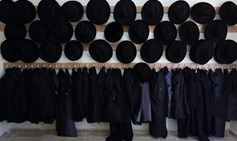
Israel Should Recognize Judaism's Main Denominations
Written By: Yohanan Plesner
IDI President Yohanan Plesner writes that Reform, Conservative, Orthodox, Reconstructionist and secular Jews are all members of the Jewish people. The Israeli government must grant equal recognition to the central movements within Judaism, including equal funding for all.
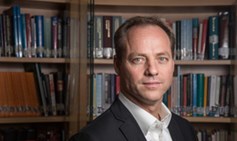
Democracy's Hatred for Hate
IDI President Yohanan Plesner writes that while democracy may be considered a fragile regime that has difficulties coping with extremism, there are still powerful means in the democratic toolbox that can and must be utilized to deal with the threats of homegrown terrorism and hatred of the "other", which can undermine Israel's character as a democratic state.

Education for Democratic Values and Combating Racism through Education
Written By: Prof. Mordechai Kremnitzer, Noam Lautman
IDI Vice President Prof. Mordechai Kremnitzer and Noam Lautman, Chairman of the Lautman Fund, recommend ways in which the Israeli educational system can strengthen democratic values, and warn that students should not be forced to choose between two competing alternatives—Israel as a nation-state or as a "state of all its citizens."
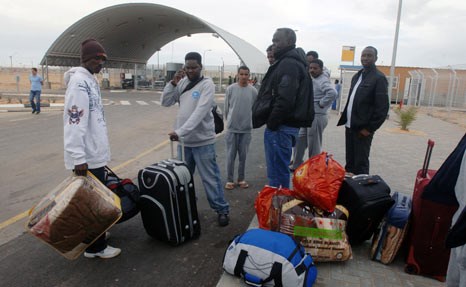
High Time for a Fair Israeli Asylum Regime
Written By: Prof. Reuven (Ruvi) Ziegler
As World Refugee Day approaches, Dr. Ruvi Ziegler argues that it is high time for Israel to adopt a fair asylum policy that would mitigate the predicament of Eritrean and Sudanese nationals.

Women's Representation in the Knesset: Still Increasing But Not Fast Enough
Written By: Prof. Ofer Kenig
Dr. Ofer Kenig analyzes the predicted rate of representation of women in the 20th Knesset as compared to previous Knessets and as compared to the rate of women's representation in the parliaments of other democracies.

Democracy: The Key Election Issue
Written By: Prof. Mordechai Kremnitzer
In an op-ed in Maariv, IDI Vice President Prof. Mordechai Kremnitzer calls for an election campaign that focuses not only on foreign policy and Israel's social gap, but on the nature of Israeli identity and the value of Israeli democracy itself.
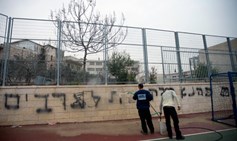
A Four-Step Plan to Combat Hatred between Jews and Arabs in Israel
Written By: Yair Sheleg
IDI Research Fellow Yair Sheleg outlines four steps that can allay fears, contribute to dialogue, combat hatred, and improve relations between Jews and Arabs in Israel
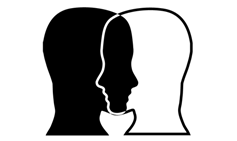
Banning Arab Workers: A Hypocritical Condemnation
Written By: Dr. Amir Fuchs
The mayor of Ashkelon's announcement following the massacre in a Har Nof synagogue that Arab workers would not be employed in his city was roundly condemned by members of the Knesset. Dr. Amir Fuchs points to the hypocrisy of these condemnations.

A Ready Alternative to the Nation State Law
Written By: Dr. Amir Fuchs
IDI researcher Dr. Amir Fuchs criticizes the proposed Basic Law that would establish Israel as the nation state of the Jewish people and recommends accepting Israel's Declaration of Independence as the preamble to Israel's future Constitution instead.
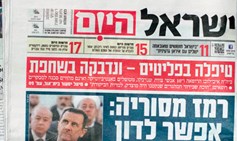
10 Reasons Why Even People Who are Appalled by Israel Hayom Should Oppose Legislation against It
Written By: Hanoch Marmari
Hanoch Marmari, former editor of Haaretz and current editor of The Seventh Eye, an independent on-line journal dedicated to critique of the media, defends <em>Israel Hayom</em>'s right to exist as a free newspaper, notwithstanding his professional qualms about the quality of its journalism.

Legal Opinion on the Israel Hayom Law
Written By: Prof. Mordechai Kremnitzer, Dr. Tehilla Shwartz Altshuler
A summary of a legal opinion opposing the "Law for the Advancement and Protection of Print Journalism in Israel," which would prohibit the distribution of a full-sized daily newspaper in Israel free of charge.

Legal Opinion on the "Zoabi Bill"
Written By: Prof. Mordechai Kremnitzer, Dr. Amir Fuchs
A summary of a legal opinion on a proposed amendment to Basic Law: The Knesset that was submitted by Prof. Mordechai Kremnitzer and Dr. Amir Fuchs to the Ministerial Committee on Legislative Affairs.
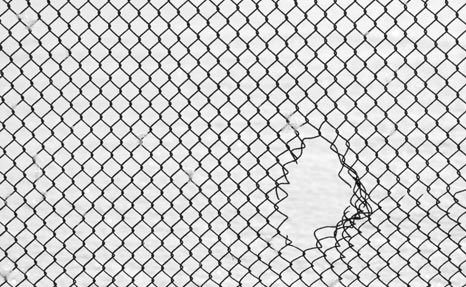
Overriding the Supreme Court: A Breach in the Wall of Democracy
Written By: Dr. Amir Fuchs
Dr. Amir Fuchs discusses the proposal to add an override clause to Israel's Basic Law: Human Dignity and Freedom that would enable the Knesset to bypass the High Court and deal a a severe blow to the main safeguard of human rights and minorities in Israel.

A Betrayal of International Law
Written By: Prof. Mordechai Kremnitzer
In a Jerusalem Post op-ed, Prof. Mordechai Kremnitzer argues that by breaching their responsibility to be impartial, the UN Human Rights Council and its commission for investigating alleged war crimes in Gaza are betraying international law, even if unintentionally.
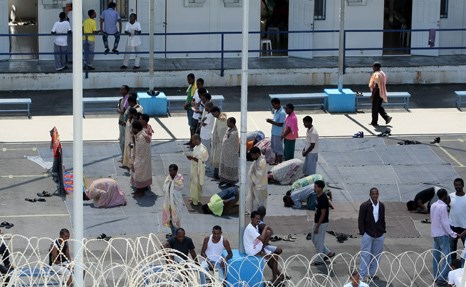
Second Strike and You Are (Finally) Out? The Quashing of the Prevention of Infiltration Law (Amendment No. 4)
Written By: Prof. Reuven (Ruvi) Ziegler
IDI Researcher Dr. Reuven (Ruvi) Ziegler presents a brief overview of the Israeli High Court of Justice's decision to strike down Amendment No. 4 of the Prevention of Infiltration Law, and explores several themes that may be of comparative constitutional interest.

The Admissions Committees Ruling: A Lack of Ripeness or Refusal to Decide?
Written By: Dr. Amir Fuchs
Dr. Amir Fuchs discusses the Israeli High Court of Justice's decision to uphold the "Admissions Committees Law," which allows small communities to reject applicants due to a lack of social suitability.

Shmita: Rest, Share, Release
Written By: Prof. Yedidia Z. Stern
An exploration of the existential, social, and economic dimensions of the Shmita year, that calls for bringing together social, moral, cultural, religious and national forces to implement the idea of Shmita in non-agricultural and national contexts in Israel.

Mourning for Gazan Children Isn't Left-Wing
Written By: Prof. Mordechai Kremnitzer
IDI Vice President Prof. Mordechai Kremnitzer discusses the High Court of Justice's decision to uphold the Israel Broadcasting Authority's rejection of an infomercial in which the names of Gazan children who were killed in Operation Protective Edge would have been read aloud.
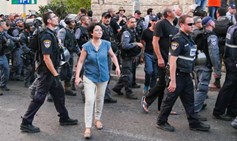
On the Punishment of MK Hanin Zoabi by the Knesset Ethics Committee
Written By: Dr. Assaf Shapira
IDI researcher Assaf Shapira provides background information on the decision of the Knesset Ethics Committee to suspend MK Hanin Zoabi for statements she made about the kidnapping and murder of three Jewish teenagers and about Operation Protective Edge.

On Intermarriage, Judaism, and Democracy in Israel
Written By: Benjamin (Benny) Lau
Rabbi Dr. Benjamin Lau shares thoughts on the tension between Judaism and democracy, in response to the public protests against the marriage of a Jewish woman who converted to Islam and an Israeli Arab.
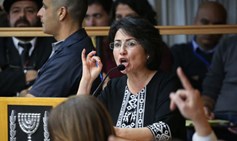
Heart vs. Head: The Case of Hanin Zoabi
Written By: Prof. Mordechai Kremnitzer, Admiral (Res.) Amichay (Ami) Ayalon
Prof. Mordechai Kremnitzer and Admiral Ami Ayalon argue that while the heart has difficulty defending MK Hanin Zoabi's freedom of expression, the head demands that we object to the decision to remove her from parliamentary activity for six months.

A Social Iron Dome for Jewish-Arab Relations
Written By: Prof. Yedidia Z. Stern
In an op-ed in <em>Yedioth Ahronoth</em>, Prof. Yedidia Stern warns that the Iron Dome could not protect Israel from hatred between Jewish and Arab citizens, and stresses the need for both sides to use imaginative empathy to mend the fabric of Israel's shared society.?

Education for Democracy as a Remedy for Violence
Written By: Dr. Amir Fuchs
Attorney Amir Fuchs asserts that educating Israeli students regarding democracy and civics from a young age and throughout their education is the best way to prevent hatred, violence, and racism.

Zero Tax, Zero Logic
Written By: Dr. Amir Fuchs
Attorney Amir Fuchs argues that the proposed legislation that would exempt first-time home-buyers from value added tax (VAT) violates the principle of equality for people who do not serve the State of Israel.
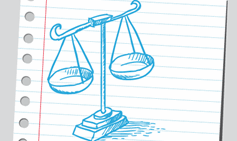
Basic Law: Nation State? Only a Constitution Can Guarantee Israel's National Character
Written By: Dr. Amir Fuchs, Prof. Mordechai Kremnitzer
Prof. Mordechai Kremnitzer and Attorney Amir Fuchs assert that the only way to guarantee Israel's existence as a Jewish and democratic state is not through a Basic Law that defining Israel as the nation state of the Jewish people but through a Constitution.

IDI Experts Submit Legal Opinion on Basic Law: Israel as the Nation State of the Jewish People
Written By: Prof. Mordechai Kremnitzer, Dr. Amir Fuchs
A legal opinion opposing the proposed Basic Law: Israel as the Nation State of the Jewish People, which was submitted by IDI Vice President Prof. Mordechai Kremnitzer and Attorney Amir Fuchs to the Ministerial Committee on Legislation on June 4, 2014.

Force-Feeding Prisoners: A Serious Violation of Human Dignity
Written By: Dr. Amir Fuchs
In an op-ed in <em>Maariv</em>, Attorney Amir Fuchs warns that force feeding hunger striking prisoners is a serious violation of human dignity, and should not be permitted in order to serve public relations efforts of the State of Israel.
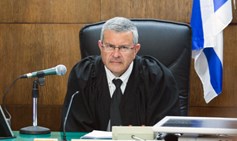
The Holyland Sentencing and the Fight against Government Corruption
Written By: Prof. Mordechai Kremnitzer
In an op-ed in <em>Haaretz</em> published after Ehud Olmert was sentenced to six years in prison, Prof. Mordechai Kremnitzer explores the implications of the Holyland case for the battle against corruption in Israel.

A Jewish State Warrants Our Sacrifice
Written By: Prof. Yedidia Z. Stern
IDI Vice President Prof. Yedidia Stern reflects on the privilege of sacrifice and the necessity to maintain a Jewish Israel in order to justify that sacrifice, in an article written for Remembrance Day for the Fallen of Israel's Wars and Victims of Terrorism.

Price Tag Attacks: Racist Crimes
Written By: Dr. Amir Fuchs
In an article in <em>Haaretz</em>, Attorney Amir Fuchs stresses the need to wage a genuine war against racism, in order to preserve the values of Zionism and safeguard the Jewish and democratic state.

Israeli Public Opinion on Reducing Funding to Organizations that Mark Independence Day as the "Nakba"
Written By: Mr. Chanan Cohen
What do Jews in Israel think about the law mandating the reduction of government funds to institutions that mark Israel Independence Day as a day of mourning for the Palestinian "Nakba"? Find out in this mini-survey conducted by IDI's Guttman Center.

Celebrating Independence: The Vision of Professor Reuven Feuerstein
Written By: Benjamin (Benny) Lau
As Israel prepares to celebrate its independence, Rabbi Dr. Benjamin Lau and Ms. Shira Ruderman remind us of the need to bring people with disabilities into the circle of those who celebrate independence, drawing on the legacy of the late Prof. Reuven Feuerstein in this call for integration.
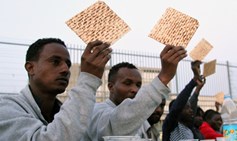
The Lessons of Passover: We are the Other
Written By: Prof. Yedidia Z. Stern
Prof. Yedidia Z. Stern asserts that if we see ourselves as "other" and identify with the stranger, the poor, and people with disabilities, historic redemption of our ancestors from Egypt will be an ongoing redemption for our generation.
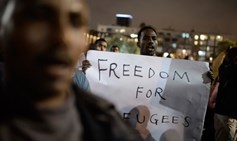
The Prevention of Infiltration Act in the Supreme Court: Round Two
Written By: Prof. Reuven (Ruvi) Ziegler
IDI researcher Dr. Reuven (Ruvi) Ziegler explains why he believes the Supreme Court should overturn Amendment No. 4 of the Prevention of Infiltration Act just as it invalidated its predecessor.
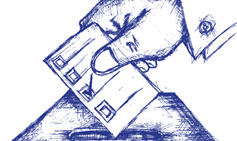
Basic Law: Referendum—Changing the Rules of the Game of Israeli Democracy
Written By: Dr. Dana Blander
Dr. Dana Blander draws on the findings of Israeli public opinion polls and explores some of the ramifications of the new Basic Law: Referendum, a law that establishes a system in which every citizen is entitled to participate in historic decisions on withdrawal from territory.

On Leadership and Responsibility: The Lessons of the Purim Story
Written By: Shira Ruderman, Benjamin (Benny) Lau
Rabbi Dr. Benny Lau and Shira Ruderman, Israel Director of the Ruderman Family Foundation, share thoughts on the Purim story, leadership, responsibility, and repair of the world.
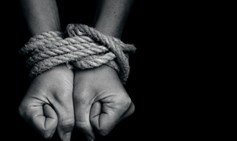
Who is Responsible for Finding a Solution to the Plight of Mesoravot Get?
Written By: Prof. Shahar Lifshitz
Prof. Shahar Lifshitz outlines what halakhic authorities and the Knesset can do in order to resolve the issue of get refusal, as discussed at the Second Agunah Summit.

Building a Shared Society: On the Priorities of the Israel Police
Written By: Prof. Mordechai Kremnitzer
Prof. Mordechai Kremnitzer explains the importance of the fifth meeting of IDI's Police and Society Forum, which was dedicated to the question of partnership and transparency in the relationship between the Israel Police and Arab society.
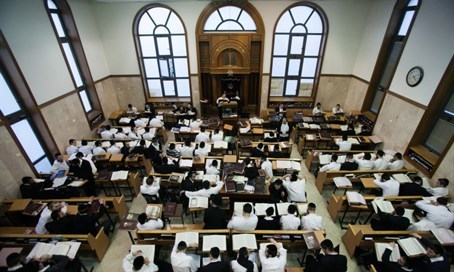
An Unequal Share of the Burden? The Truth about the Hesder Yeshivot
Written By: Prof. Benjamin Porat
Do students in the religious Zionist hesder yeshivot really contribute less to the IDF than other men who serve? IDI Researcher Dr. Benny Porat does the math and comes to an interesting conclusion.

The Case of Jonathan Pollard: A Legal Analysis
Written By: Prof. Mordechai Kremnitzer
In an op-ed in The Jerusalem Post, IDI Vice President Prof. Mordechai Kremnitzer analyzes Jonathan Pollard's life sentence and calls on President Obama to put an end to Pollard's incarceration In the name of the shared commitment to justice.

Have No Fear: On the Inclusion of People with Intellectual Disabilities in Society
Written By: Benjamin (Benny) Lau, Shira Ruderman, Admiral (Res.) Amichay (Ami) Ayalon
An op-ed by IDI Senior Fellow Admiral Ami Ayalon, Project Head Rabbi Dr. Benny Lau, and Shira Ruderman of the Ruderman Foundation, stressing the need to dispel the fear of the Other and the Different.
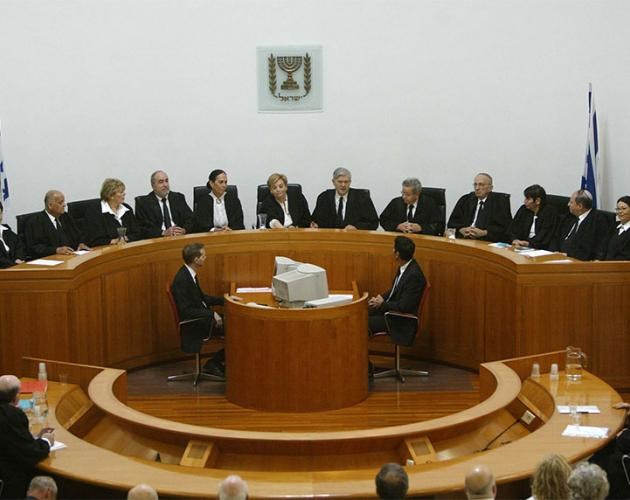
The Haredi Draft: Is the Shaked Committee's Bill Destined to be Overturned?
Written By: Prof. Yedidia Z. Stern
As the Shaked Committee begins to vote on its proposal for the Haredi draft, Prof. Yedidia Z. Stern warns that the proposal's recommendation to exempt Haredi men of draft age during a three-year "adjustment period" is both inequitable and ineffective.

Does Israel Need a Police Prosecution Department?
Written By: Prof. Mordechai Kremnitzer, Dr. Guy Lurie
In an op-ed in <em>Haaretz</em>, IDI Vice President Prof. Mordechai Kremnitzer and Dr. Guy Lurie call for reform that will abolish the Police Prosecution Department, leaving the Police to investigate and the Public Prosecution to bring criminal charges.

Civil Unions for All
Written By: Prof. Shahar Lifshitz
Prof. Shahar Lifshitz explains why IDI's proposal for civil unions, which was first presented in his IDI policy paper The Spousal Registry, is the best solution possible today for alleviating the distress of couples who cannot or do not want to marry in a religious ceremony in Israel.

Do You Have to Earn Dignity?
Written By: Prof. Tamar Hermann
Is dignity something that must be earned? Prof. Tamar Hermann, Head of IDI's Guttman Center for Surveys, explores this question, as IDI's Israel Speaks project assembles 200 citizens to begin drafting a Declaration of Human Dignity.

A Truly Supreme Court
Written By: Prof. Mordechai Kremnitzer, Dr. Guy Lurie
In an op-ed in TheMarker, IDI Vice President Prof. Mordechai Kremnitzer and Dr. Guy Lurie discuss the benefits of establishing a new appellate court between the district courts and the Supreme Court.

Non-Jews in a Jewish State: Searching for a New Paradigm
Written By: Kalman Neuman
In an article in The Jewish Week, Rabbi Dr. Kalman Neuman of IDI's Religion and State project examines some of the thorny questions of Jewish law when it comes to non-Jews in a Jewish state.

Human Rights under Attack
Written By: Dr. Amir Fuchs
IDI Researcher Attorney Amir Fuchs discusses two indirect threats to human rights in Israel: attacks on the Israeli Supreme Court and attacks against Israeli human rights organizations.

Marriage Equality for the Hearing Impaired
Written By: Benjamin (Benny) Lau
Rabbi Dr. Benjamin (Benny) Lau celebrates a planned change in the Chief Rabbinate's policy regarding the treatment of hearing impaired individuals when it comes to marriage in Israel.

International Disabilities Day 2013: Human Rights and Judaism in Action
Written By: Benjamin (Benny) Lau
In honor of International Day for Persons with Disabilities, Rabbi Dr. Benjamin (Benny) Lau updates us on IDI's efforts on behalf of people with disabilities and reveals that people with guide dogs are now allowed to access the Western Wall.

Organized Criminals Today, Everyone Else Tomorrow
Written By: Lina Saba
In an op-ed in Haaretz, Attorney Lina Saba-Habesch warns that extending the use of administrative detention to apply to suspects in cases of organized crime could lead to the use of this extreme method, or of other extreme methods, in combating other forms of crime.

The Haredi Draft: Equality Now?!
Written By: Prof. Yedidia Z. Stern
On November 21 2013, Prof. Yedidia Z. Stern appeared before the Shaked Committee and argued that criminal sanctions are not recommended for reaching conscription goals. In an op-ed in Makor Rishon, he explains why.

Prof. Mordechai Kremnitzer Speaks Out on Using Administrative Detention in Cases of Organized Crime
Written By: Prof. Mordechai Kremnitzer
IDI Vice President of Research Prof. Mordechai Kremnitzer responds to the possibility that the police will use administrative detention to combat organized crime, much in the manner as it is used to combat terrorism.

The Binding of the Boy from Damascus
Written By: Prof. Yedidia Z. Stern
How should Jews in Israel feel about the mass slaughter of Arabs by Arabs just a few miles away? IDI Vice President Prof. Yedidia Z. Stern shares thoughts in this article, which was originally published in The Jewish Week.
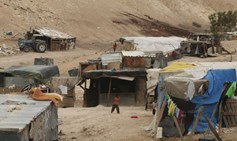
Regulating Bedouin Settlement: A Disengagement Plan for the Negev
Written By: Ronit Levine-Schnur
Ronit Levine-Schnur analyzes the Bill to Regulate Bedouin Settlement in the Negev 5773–2013, warns that it seems to be motivated by an exaggerated fear of a Bedouin takeover of the Negev, and offers an alternative approach.

Civil Unions in Israel as a Democratic Compromise
Written By: Prof. Shahar Lifshitz
Prof. Shahar Lifshitz, author of an IDI policy paper proposing a spousal registry as a framework for civil unions in Israel, welcomes the reintroduction of this issue to the public agenda but expresses some concern about the formulation of the current bill.
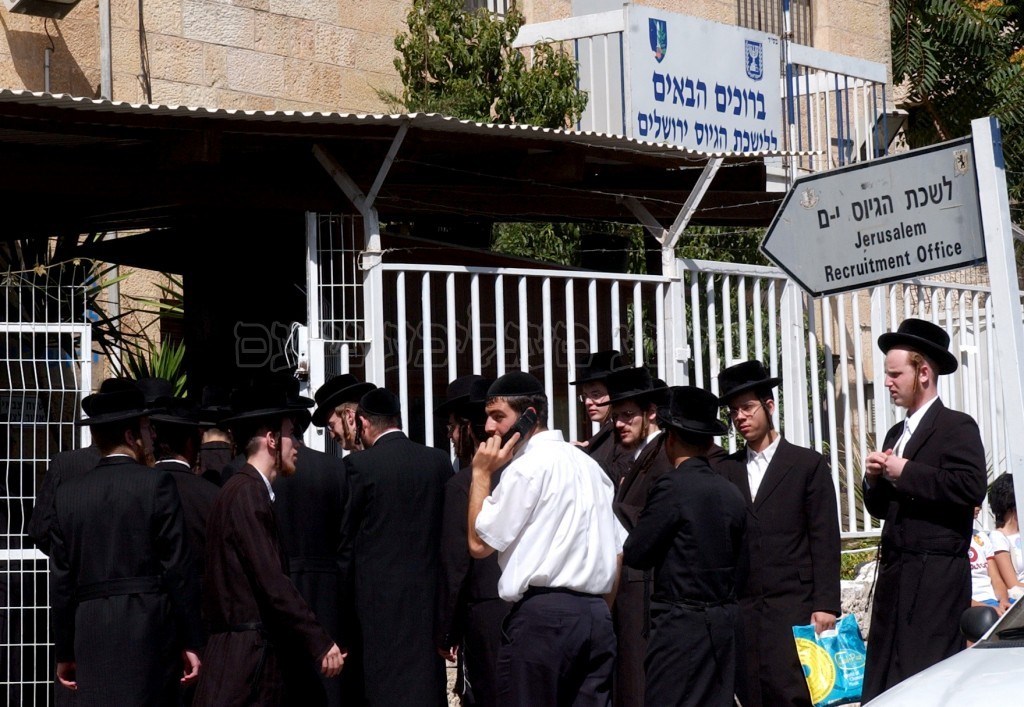
Sir Isaac Newton and the New Haredim
Written By: Prof. Yedidia Z. Stern
Prof. Yedidia Stern shares thoughts on the connection between failure of the ultra-Orthodox "Tov" party in the local elections, the Haredi draft bill being debated by the Shaked Committee, and Newton's laws of motion.

Separating the Prosecution from the Police
Written By: Prof. Mordechai Kremnitzer, Dr. Guy Lurie
Most criminal cases in Israel are prosecuted by the Israel Police rather than by the State Prosecutor. Prof. Mordechai Kremnitzer and Dr. Guy Lurie call for a division that would make the Police responsible for investigations and the State Prosecutor responsible for indictments and trials.

The Contributors to the State Bill: Contributing to the Jewish-Arab Divide
Written By: Dr. Talya Steiner, Prof. Mordechai Kremnitzer
Prof. Mordechai Kremnitzer and Att. Talya Steiner warn that the veteran's benefit bill, which is intended to extend benefits to those who have contributed to the State, discriminates against Israel's Arab citizens, who are exempt from military service in Israel.
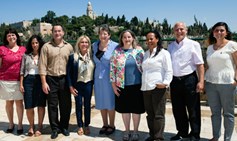
Women and Israeli Local Politics – A Natural Fit
Written By: Moran Nagid
More women than ever are running for Israeli municipal government in the local elections of 2013, but is it enough? Moran Nagid surveys the appeal of local politics for women and suggests a means of improving the situation.

Blind to the Rights of the Disabled
Written By: Benjamin (Benny) Lau
In an article in The Jewish Week, Rabbi Dr. Benjamin (Benny) Lau calls on religious authorities who hold human rights dear to find a way to allow people with disabilities to have access to the Western Wall plaza.

The Israeli Democracy Index: A Periodic Check-Up
Written By: Prof. Tamar Hermann
Prof. Tamar Hermann, head of IDI's Guttman Center for Surveys, discusses the findings of the 2013 Israeli Democracy Index, which was submitted to President Shimon Peres on October 6, 2013.

Did You See the Tears of the Oppressed?
Rabbi Dr. Benjamin (Benny) Lau, head of IDI's Human Rights and Judaism in Action project, remembers Rabbi Ovadia Yosef as a courageous halakhic decisor who championed the needs of the oppressed.

What Can We Learn about Israeli Policy Making from the Supreme Court's Ruling on the Anti-Infiltration Law?
Written By: Dr. Talya Steiner
Attorney Talya Steiner warns that a Supreme Court's judgment that struck down an amendment of Israel's anti-infiltration law as unconstitutional points to significant flaws in Israel's process of policy-making.

The Israeli Economy: Has the Melting Pot Succeeded?
Written By: Momi Dahan
A study conducted by IDI Senior Fellow Prof. Momi Dahan that reveals that there has been a continuous narrowing of income gaps between Israelis of European-American origins and of Asian-African origins since the 1990s.

Quashing Legislation Mandating Lengthy Detention of Asylum-Seekers
Written By: Prof. Reuven (Ruvi) Ziegler
Dr. Reuven (Ruvi) Ziegler shares observations on the decision of the Israeli Supreme Court that an amendment of the Prevention of Infiltration Law that mandated lengthy detention of asylum seekers is unconstitutional.
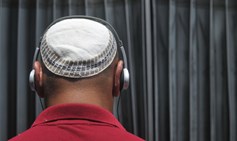
No to the Separation of Religion and State in Israel
Written By: Yair Sheleg
Should the American model of separation of church and state be applied to Israel? In an article in <em>The Jewish Week</em>, IDI's Yair Sheleg argues that Israel needs a unique model.

From Institutions to Community Housing
Rabbi Dr. Benjamin Lau, head of IDI's Human Rights and Judaism in Action project, presents the transition from institutions to homes in the community for people with disabilities as a Jewish imperative.

Life Under Two Suns: When Human Rights and Jewish Values Collide
Written By: Prof. Yedidia Z. Stern, Jay Ruderman
The first in a series of articles by researchers from IDI's Judaism and democracy projects and Human Rights and Judaism project on the complementary but tense relations between Judaism and democratic values.

How Can We Draft the Ultra-Orthodox with Consent?
Written By: Prof. Yedidia Z. Stern
Is it possible to draft the ultra-Orthodox and integrate them into Israel's society and economy in a mutually-agreeable manner that encourages solidarity between the different sectors of the Jewish people? Prof. Yedidia Z. Stern shares thoughts on wars between brothers and brothers-in-arms.
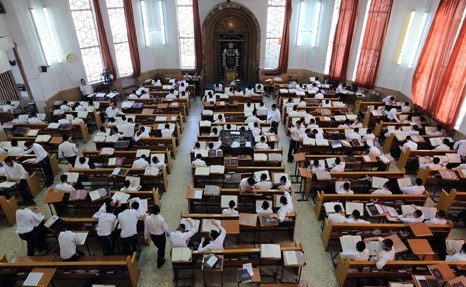
The Ultra-Orthodox Draft: Crossing the Third Rubicon
Written By: Prof. Yedidia Z. Stern, Haim Zicherman
Prof. Yedidia Z. Stern and Attorney Haim Zicherman stress the need to break down barriers that are preventing Haredi service in the army and integration in the labor force, and warn against passing a popular but ill-advised reform.

Who Represents Equality – The Attorney General or the Equality of Opportunity Commission?
Written By: Prof. Mordechai Kremnitzer, Dr. Talya Steiner
Should the State always present its position in a unified voice or should state institutions with specific expertise sometimes be allowed to present their views separately? Prof. Mordechai Kremnitzer and Attorney Talya Steiner address this question In an op-ed in Haaretz.

Haredi Integration: Not by Re-Education
Written By: Haim Zicherman
IDI researcher Attorney Haim Zicherman warns against attempts to integrate ultra-Orthodox Jews into the army by encouraging them to abandon their lifestyle, and calls for developing mechanisms that will accept and respect their values.

Basic Law: Israel as the Nationalist State of the Jewish People
Written By: Dr. Amir Fuchs, Prof. Mordechai Kremnitzer
In an op-ed originally published in Maariv, Prof. Mordechai Kremnitzer and Attorney Amir Fuchs warn that the Basic Law: Israel as the Nation State of the Jewish People would undercut the balance between the "Jewish" and "democratic" nature of the State of Israel.

Women’s Representation in the Knesset: Is it Sufficient?
Written By: Prof. Ofer Kenig
The 19th Knesset is expected to have a record number of women MKs. Nonetheless, the percentage of women in the Knesset is lower than that found in the parliaments of most other established democracies. IDI researcher Dr. Ofer Kenig provides an overview of the situation.
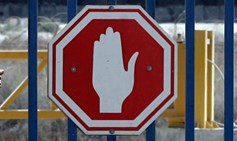
An Invitation to Racism
Written By: Dr. Amir Fuchs
On December 4, 2012, the Israeli Supreme Court heard a petition arguing that the “Admissions Committee Law” is discriminatory and unconstitutional. Attorney Amir Fuchs explains why he sees this law as an insult to Israel's democracy.

Do Not Put an End to Ultra-Orthodox Army Service
Written By: Haim Zicherman
Following the dissolution of the Committee to Advance Equality in Sharing the Burden, committee head MK Yohanan Plesner submitted proposals for alternatives to the Tal Law. In this article, IDI Researcher Attorney Haim Zicherman, who served as the content coordinator of the Plesner Committee, warns that some of those measures were personal recommendations rather than recommendations of the Committee, and may reverse trends of increasing army service by ultra-Orthodox Jews.

If They Give, They Will Receive
Written By: Yair Sheleg
In this response to the Supreme Court ruling on the Tal Law, IDI Senior Researcher Yair Sheleg asserts that the exemption of ultra-Orthodox men from military service is an unparalleled <em>Hillul Hashem</em>—a desecration of the Name of God, and shares his views of a possible solution.

Faking Feminism
Written By: Debora Lederman-Danieli
The issue of the exclusion of women and their marginalization in Israeli society has dominated the media in Israel during the past few weeks. In this article, which was originally published in The Seventh Eye on December 25, 2011, Dr. Debora Lederman-Danieli argues that the media's struggle against the phenomenon of the degradation of women requires much more than disingenuous, populist outcries.

Abstract: Health Inequality of Arabs and Jews in Israel
Written By: Shlomit Kagya, Nabil Khattab
A paper that reviews the state of research on health inequality between Jews and Arabs in Israel in order to develop a comprehensive research program that will contribute to the understanding of the factors leading to inequality.

A Jewish and Undemocratic State?
Written By: Prof. Yedidia Z. Stern
The proposed "Basic Law: Israel – The Nation State of the Jewish People" has the support of one third of the members of Knesset. In this op-ed, which was originally published in Hebrew in Yedioth Ahronoth, IDI Vice President of Research Prof. Yedidia Z. Stern, who is deeply committed to the Jewish nature of the State of Israel, warns that the shift from defining Israel as a "Jewish and democratic state" to a "Jewish state with a democratic regime" is not a semantic shift, but a seismic change.

Clear-Cut Racism or Complicated Relationship?
Written By: Yair Sheleg
Are the ostensibly anti-Arab bills under consideration by the Knesset, the “Rabbis’ Letter” that forbids the sale of real estate to non-Jews, and the findings of the 2010 Israeli Democracy Index clear-cut indicators that racism is on the rise in Israel today? Or are more complex factors at play? IDI Research Fellow Yair Sheleg shares his views on this matter.

Women in the 18th Knesset
Written By: Prof. Ofer Kenig
IDI Researcher Dr. Ofer Kenig analyzes the results of the 2009 Israeli general election elections as they pertain to women's representation in the Knesset.

Summing Up the Knesset's Summer Session
Written By: Prof. Mordechai Kremnitzer
Prof. Mordechai Kremnitzer reflects on the productivity of the Knesset during the summer of 2008, suggesting that most of its members' energy was invested in dangerous, anti-democratic, disproportionate, offensive, and sometimes almost racist, legislation.

Arab Identity in a Jewish and Democratic State
Written By: Karin Tamar Schafferman
IDI researcher Karin Tamar Shafferman calls for a reexamination of the relationship between Arabs and Jews in the State of Israel and an exploration of the way Israel's Arabs define themselves, in order to determine whether the equality that Ben-Gurion spoke of upon founding the State has been achieved.

Women and Civil Society in Israel
Written By: Naomi Himeyn Raisch
In an article originally published in Hebrew in IDI's online journal Parliament, Naomi Himeyn Raisch surveys the unique characteristics of women's organizations and how they affect productivity in Israel.

The Missed Opportunity of the Century: The Haredi Exemption Law
Written By: Yohanan Plesner
The government and the coalition have been given a second chance – which has come at a heavy price of blood and suffering – to turn this crisis into an opportunity and set the foundations for a new social covenant among Israelis.
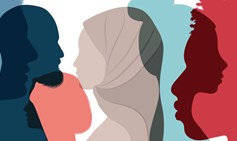
Equality Now!
Written By: Prof. Suzie Navot
The problem with the Nation-State Basic Law is what it fails to mention - equality! Thus excluding Israel’s minorities who call the country home.

Legislating the Right to Equality is a Must
Written By: Dr. Amir Fuchs
Israel is the only democracy whose constitution or basic laws omit all mention of the right to equality –leaving a gaping hole that must be filled.
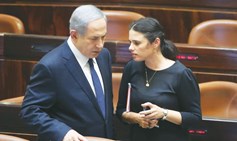
Who's Afraid of a Jewish State with Equality for All?
Written By: Yohanan Plesner
A state that is proud of its identity has nothing to fear from granting all its citizens equality.

Harmful Revolution: The Nation-State Bill’s Assault on Equality
Written By: Prof. Yedidia Z. Stern
Israelis must unite around a balanced arrangement that asserts that Israel is the nation-state of the Jewish people that guarantees equality for all its citizens.

Ultra-Orthodox in the IDF: A Ticking Time Bomb
Written By: Prof. Yedidia Z. Stern
To encourage enlistment, Israel should adopt a conscription model that is cognizant of the ultra-Orthodox fear of erosion of their identity and employs both positive and negative economic incentives.

The Nation State law
Written By: Yohanan Plesner , Prof. Mordechai Kremnitzer, Prof. Yedidia Z. Stern
If Israel was founded as the state of the Jewish people, why is a nation-state law so problematic, having already toppled one government?
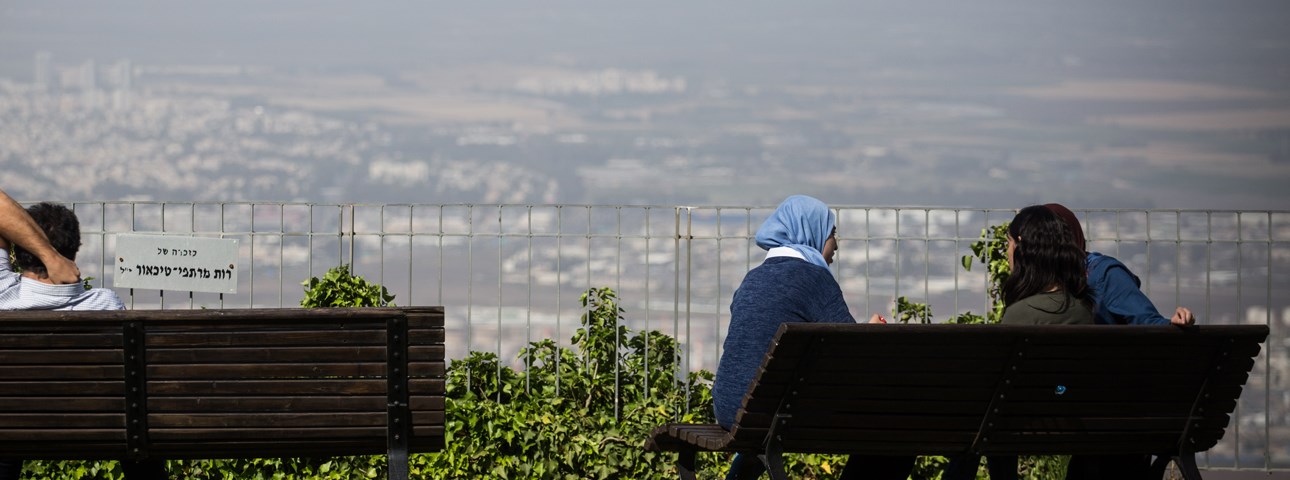
Time to Include Arabs among the Decision-Makers
Written By: Dr. Nasreen Haddad Haj-Yahya
The state and its Arab leadership, not only the political leadership, must work together to bring as many Arab citizens as possible into the decision-making echelons.

'Yes' to a Nation-State, 'No' to a Nationalistic State!
Leaders of the Israel Democracy Institute call for alternative proposal that would place nation-state of the Jewish people on equal footing with democratic obligation to equality for all Israeli citizens.

